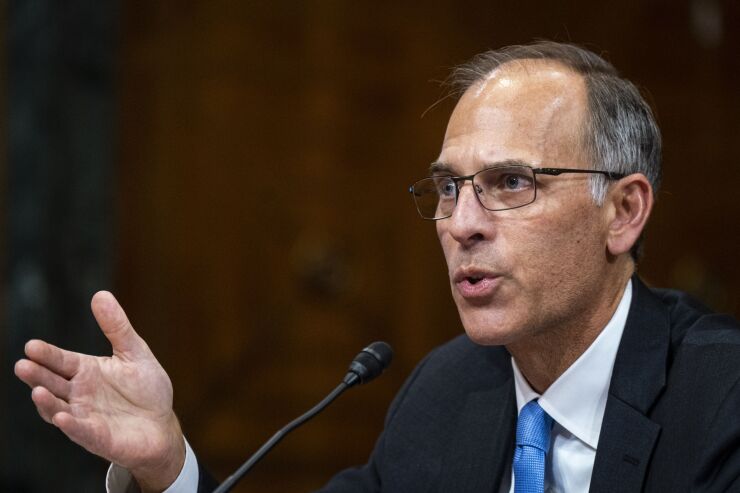Market participants are upbeat with predictions about an economy showing few signs of recession, a record-breaking stock market and a Federal Reserve that is expected to start ratcheting down interest rates.
Fresh economic data showing gross domestic product growing by an annual rate of 3.3% has bond issuers and ratings agency forecasters feeling bullish about what's in store for 2024.
"There are no negative numbers, everything contributed to growth," said Mark Zandi, chief economist at Moody's Analytics. "Consumers, businesses, trade, government, state, local government, everything has all the oars rowing in the same direction. The really cool thing was that despite the very strong growth, inflation is low. I think the word is giddy."

His brimming-with-optimism comments came during a webinar produced by the Volcker Alliance and Penn Institute for Urban Research on Thursday. The good feelings extended into thoughts about where a beleaguered municipal bond market might be headed.
"Last year obviously was well below historical levels in terms of bond issuance," said Eric Kim, senior director at Fitch Ratings. "There are a lot of factors there, interest rates being one of them. If that changes it does seem like that would be potential spur. There is still a lot of investment happening even outside of capital bonding. There's a tremendous amount of federal money still flowing in."
The notion is backed up by three weeks of
"I think we've got to continue to focus on how the bond market is going to fund supply for projects for 2024, and the need for more revenue to help us to implement some of the projects that we are trying to put into the municipal market space," said Clarence Anthony, CEO, executive director, National League of Cities.
On the state side, budgets remain flush with money as rainy-day funds have been fully padded. Colorado is required by its constitution to
"We're actually projecting about a two and a half percent reduction," said Mark Ferrandino, director of the Colorado Office of State Planning and Budgeting. "That being said, I will say that over the last four forecasts we've done, each time has gone higher than what we had previously predicted."
For comparison Ferrandino cited the state's 4% reserve funds that existed during the Great Recession versus the 15% reserve that's now backing up the budget.
Kim ran through a list of states with reserves that were running on empty that have now been transformed by the combination of stimulus funds and higher tax revenues. "You had states like Illinois, Kansas, Nevada, Pennsylvania, going from virtually nothing in reserves at the end of fiscal 2020 to building up reserve balances by the end of fiscal 2023 to levels a never reached before," he said. "Illinois went from $4 million to $2 billion. Kansas went from virtually nothing to $1.6 billion. Pennsylvania, went from $22 million to over $5 billion in that period."
The flood of funding has some states, including West Virginia pondering a total elimination of income tax. "These are some of the things that we're observing now and watching," said Kim. "All of our state ratings are either on a stable outlook, or we have a several with positive outlooks. In the near term, we don't see negative rating action and we think states are well positioned to absorb the challenges."
Job growth at the state and local level was also cited as an economic engine powering local economies. "Now that the private sector has rehired, employment levels are back and wage growth has moderated, I think it opens up an opportunity now for state and local governments to right-size their employer base," said Zandi.





